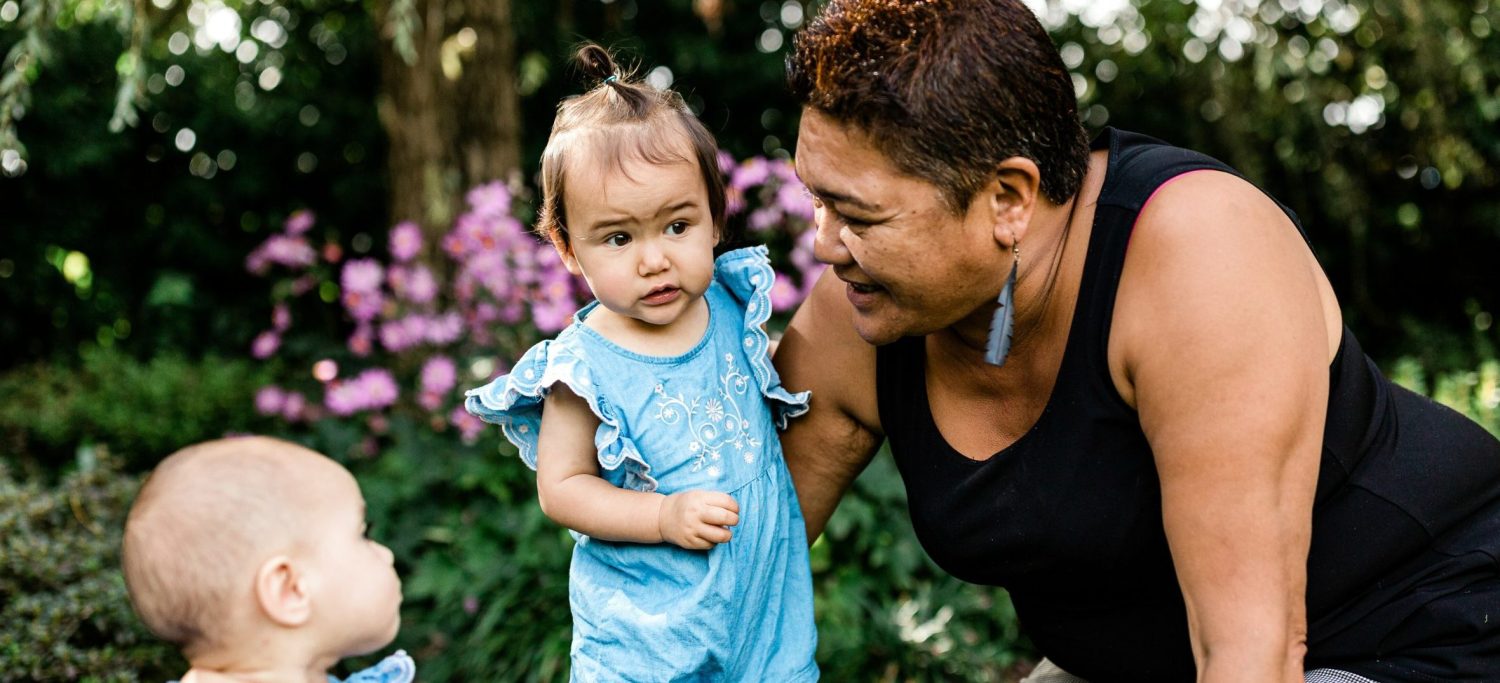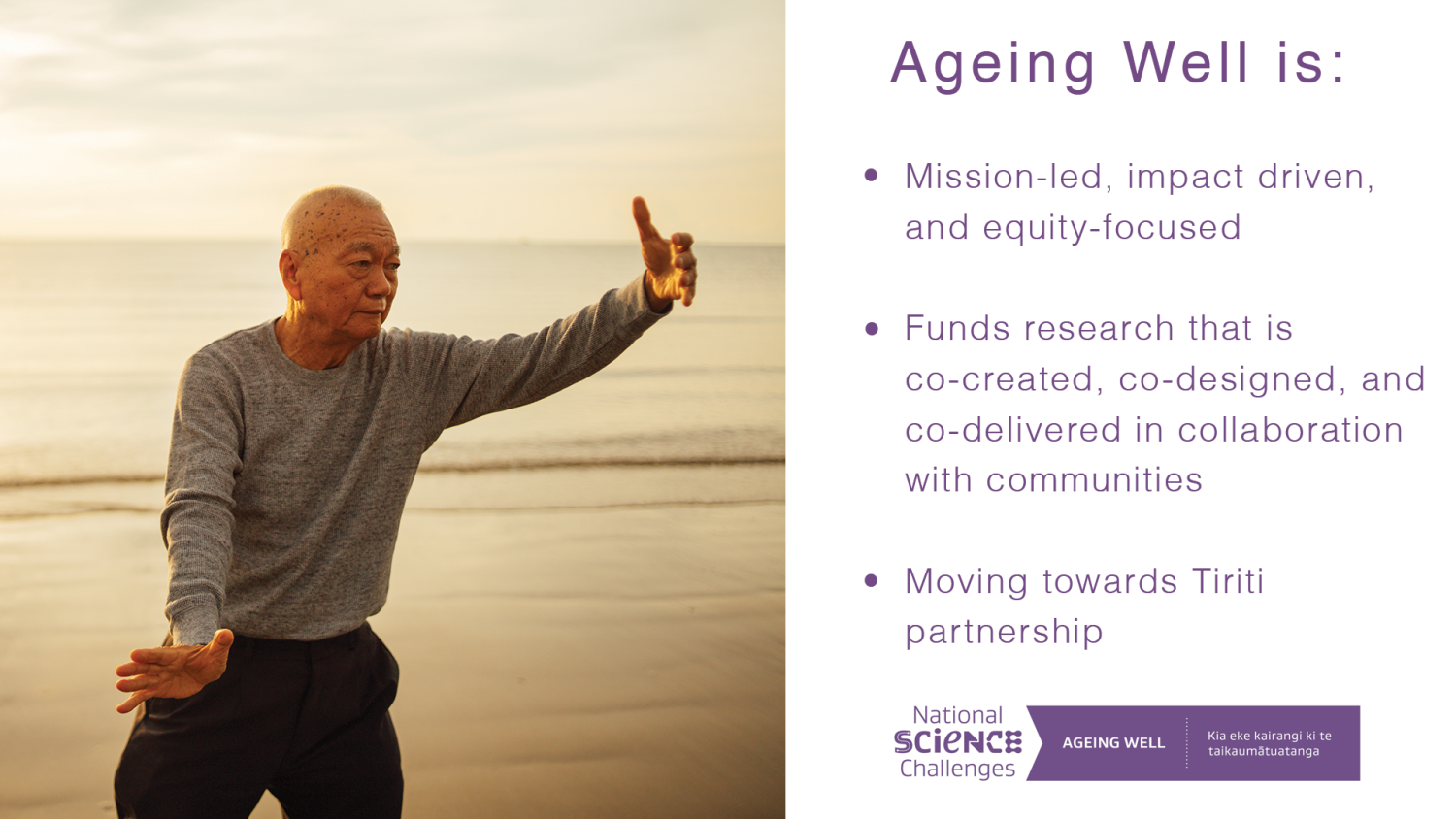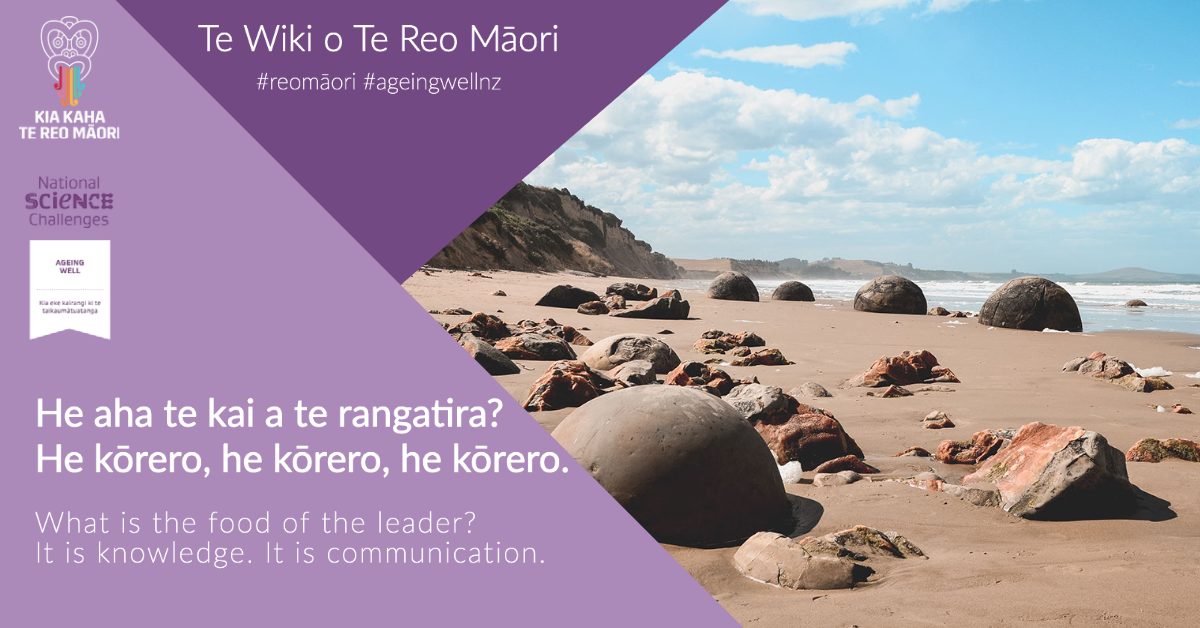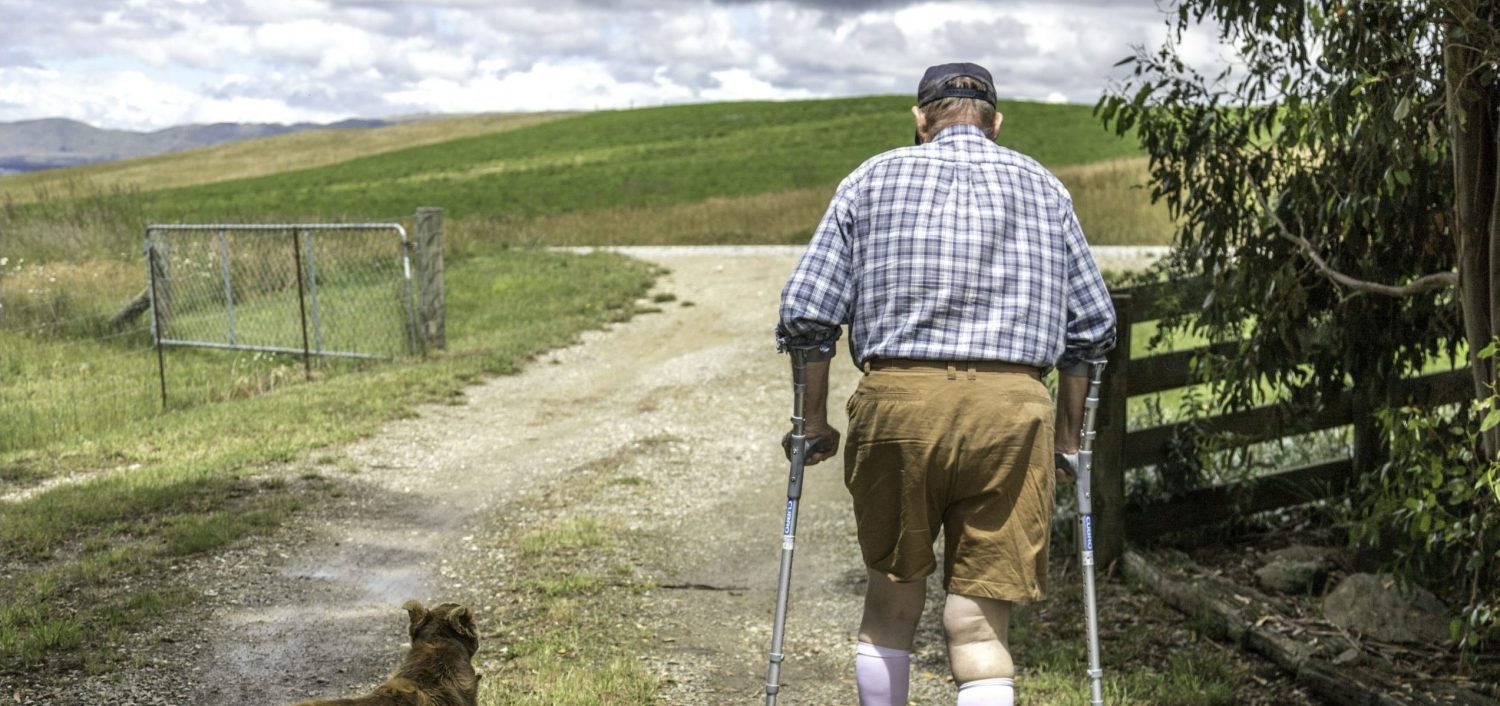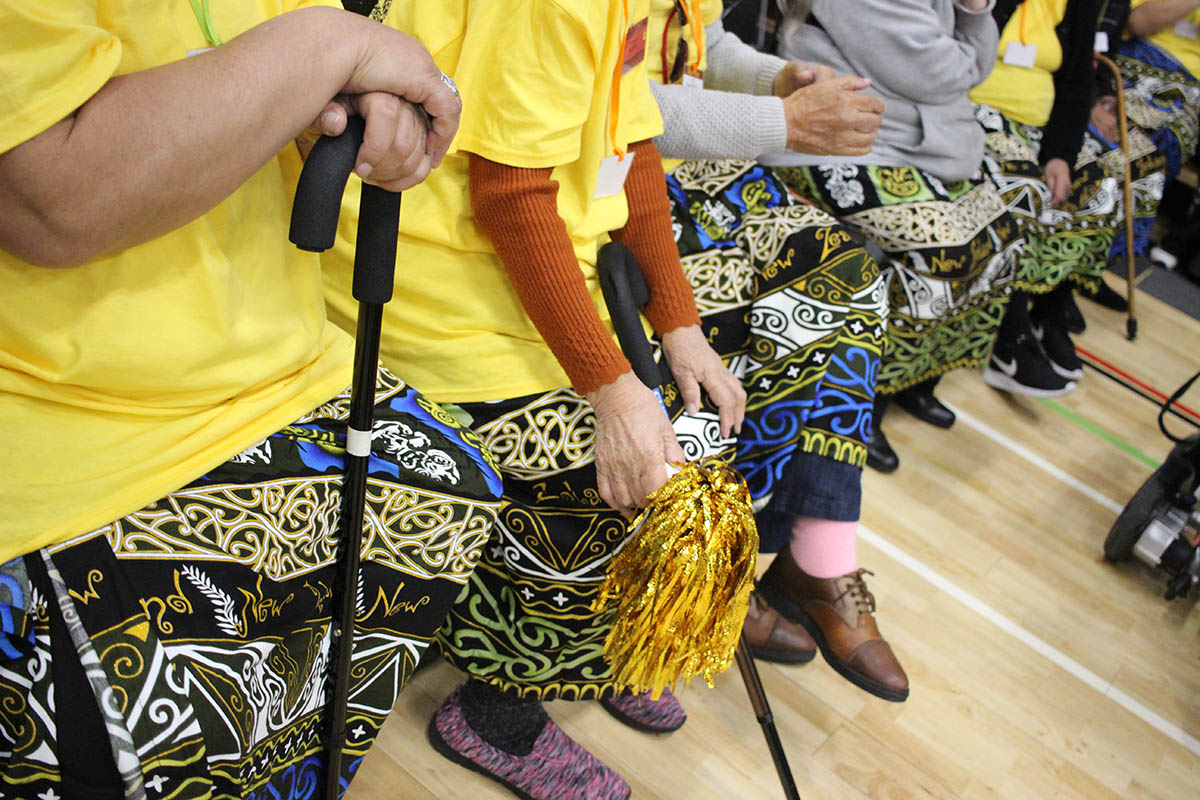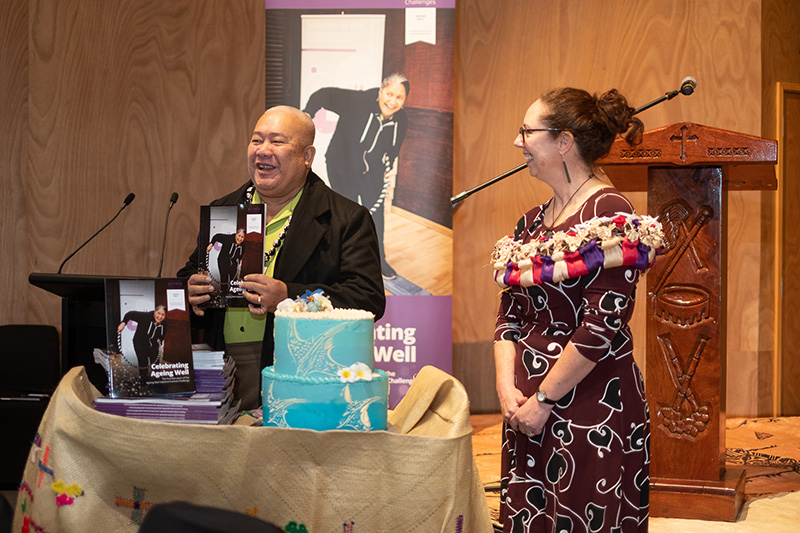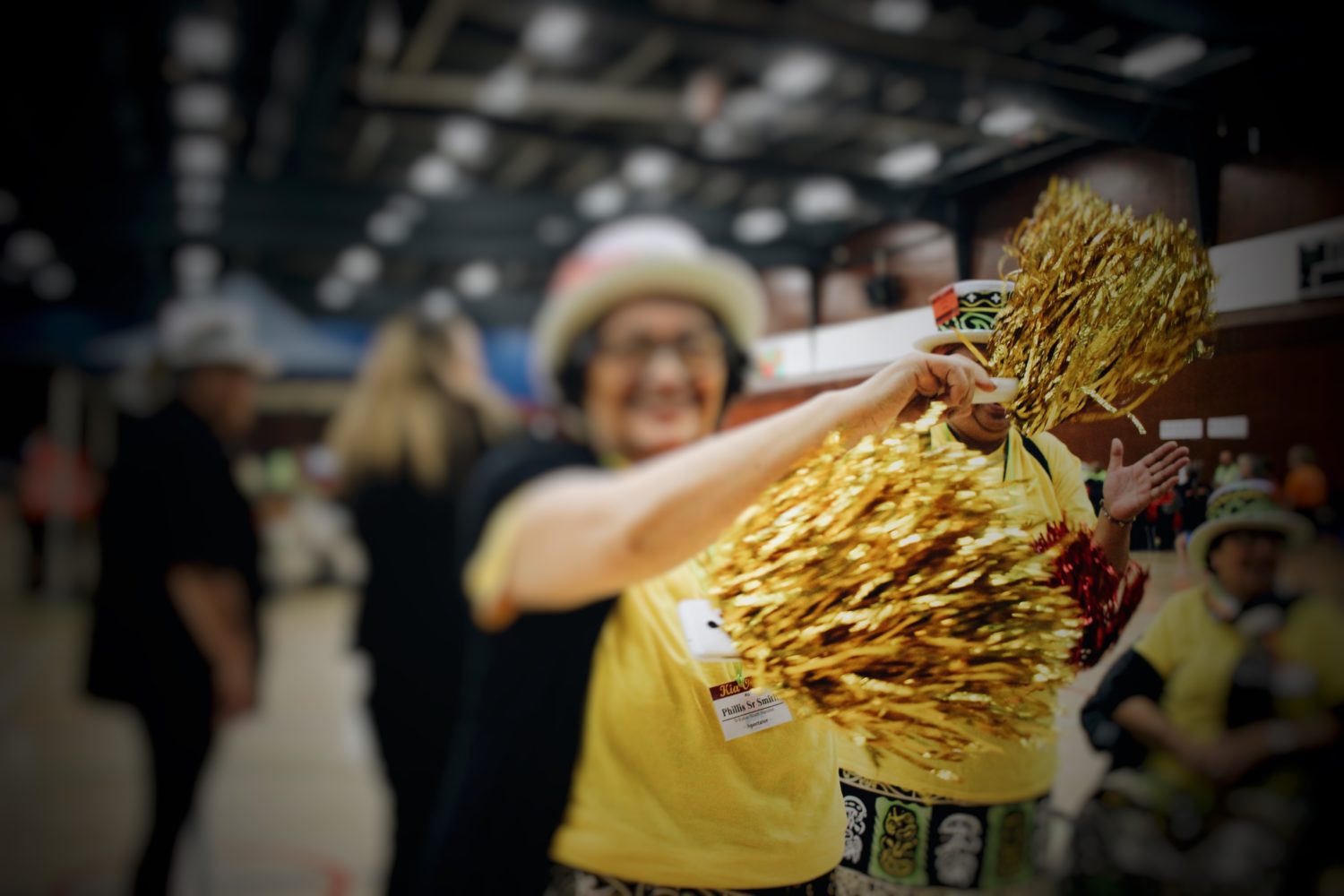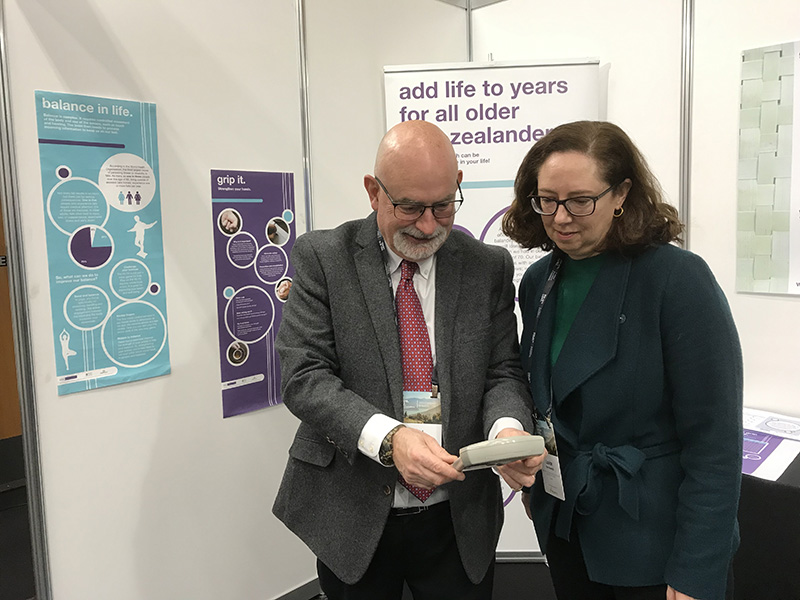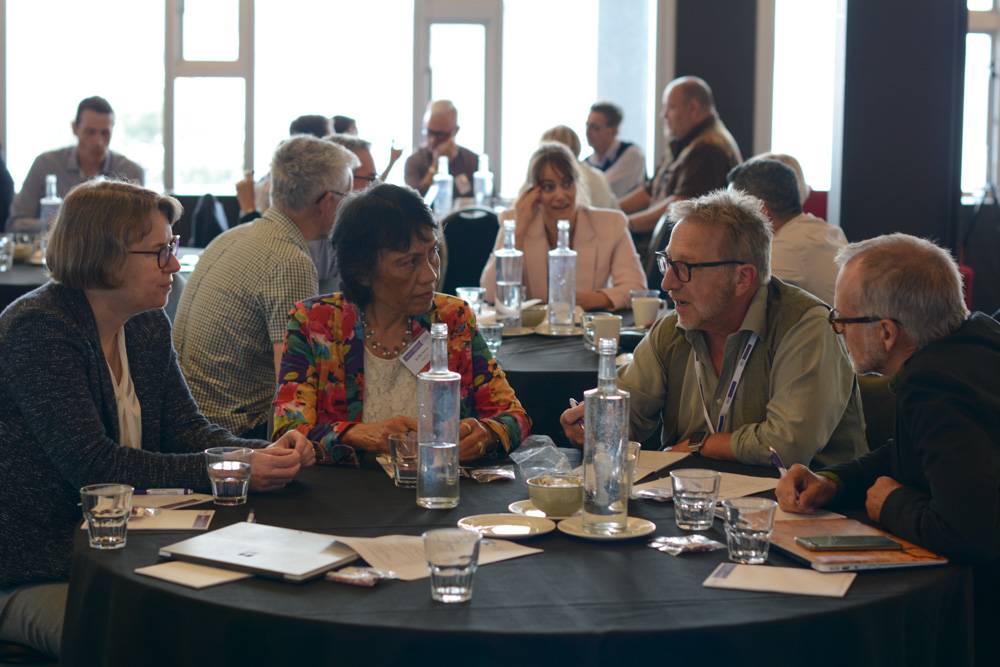Kia eke kairangi ki te taikaumātuatanga, Ageing Well National Science Challenge, is a national research collaboration involving the major New Zealand research groups in ageing research. Across Ageing Well National Science Challenge, we have expertise in public health, Māori health, social science, biomedical science, clinical practice, population and community health, and health service provision.
Through our national programme of funded research, Ageing Well links with international networks, with the other health and well-being Science Challenges, Centres of Research Excellence (such as Brain Research New Zealand), and key funders such as the Health Research Council of NZ, to encourage collaboration, and to build and leverage capability and resources.
During Phase One (2014-2019) Ageing Well supported research under five interlinking strands to address our mission: to harness science to sustain health and well-being into the later years of life enabling all New Zealanders to reach their full potential.
These strands focused on: enabling independence and autonomy/tino rangatiratanga of older individuals and their whānau and families; ensuring a meaningful life through social integration and engagement; recognising at a societal level the value of ongoing contributions of knowledge and experience of older people; reducing disability; and, developing age-friendly environments.
In Phase Two (2019-2024), our work is framed by two focus areas of research: Ageing and Māori and Health and Wellbeing in Ageing, as well as our Strategic Investment Initiatives, all of which incorporate elements of the five research strands from Phase One.
Ageing Well continues to invest in work that helps sustain health and well-being by optimizing brain and body health, and social and physical environments for older people.
Background
Ageing Well as one of 11 National Science Challenges was allocated funding from the Ministry of Business, Innovation and Employment (MBIE) for ten years (NZ$ 34.9M; 2015-2024). The funding was separated into two parts: Phase One from 2014-2019 and Phase Two from 2019-2024.
For Phase Two, Ageing Well proposed to build upon our previously gazetted research themes through two Focus Areas: Health and Well-being in Ageing and Ageing and Māori (Figure 1 below).
These areas were identified after extensive consultation that underscored the strong view that the original Gazette themes were too compartmentalised to facilitate the next phase of multidisciplinary, cross-institutional collaborations that were needed to specifically address equity issues and Ageing Well’s commitment towards becoming a Te Tiriti partner.
Focus Areas of Investment
In November 2018, Ageing Well was awarded $20.3 million to continue our work, specifically focusing on two research areas:
- Health and Well-being in Ageing; and
- Ageing and Māori
In 2019, Ageing Well allocated $10 million to fund research in the two research areas. Just under $5 million was awarded to the Ageing Well through Eating, Sleeping, Socialising and Mobility Programme (AWESSoM) project and $5 million was allocated to the Ageing and Māori focus area.
Two projects were successfully funded in this focus area: Tai Kaumātuatanga Older Māori Wellbeing and Participation: Present and Future Focus project and the Kaumātua Mana Motuhake Pōi: Enhancing Wellbeing, Social Connectedness and Cultural Identity project.
Strategic Investment Initiatives
Ageing Well National Science Challenge recognised the limits to the resource it can direct, and that there was value in working alongside other research funders and consortia, that aligns with our vision and mission. To that end, we have collaborated and co-funded research with:
Over 50% of Ageing Well’s Phase 2 funding is invested in Māori-led research.
